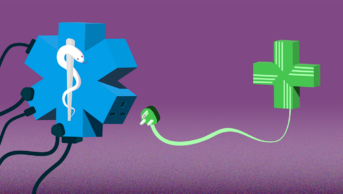
Shutterstock.com
Increasing the amount of patient information available through the summary care record (SCR) improves quality of care and reduces the burden on the health service during winter, according to SCR developer, NHS Digital.
Information that can now be shared by GPs, with patient consent, includes information on long-term health conditions, medical history and immunisations. This is in addition to medication, allergies and adverse reactions, which could be shared previously.
A new update to the SCR has made it easier to identify when new information has been added to the record.
“Uploading additional information to the SCR increases its benefits and enables clinicians to provide the best care possible to patients, as they have more details available at their fingertips,” said James Hawkins, director of digital transformation and engagement at NHS Digital.
“This also means patients won’t have to repeatedly provide the same information, especially when they are feeling unwell, and this can help save time when health services are busy, as well as potentially avoiding unnecessary hospital admissions,” he added.
According to Hawkins, 96% of people now benefit from the SCR, which is accessible to health and care professionals in England, such as pharmacists, out of hours GPs, hospital doctors and nurses, the ambulance service, 111 and Urgent Treatment Centre staff.
Cumbria community pharmacist, Ben Merriman, said the more data community pharmacists have access to via the SCR, the better.
“Throughout the year, and especially over the Christmas period when patients may be away from home and when they are encouraged to practice ‘self-care’, community pharmacies are an essential part of the NHS network, offering advice and treatments for a range of ailments,” he said.
“The more information a pharmacist has available to them, including information not currently available on the SCR, the better care patients receive.”
Merriman added that the next step should now be for community pharmacists to be able to access, with the patient’s consent, the full medical record with read and write access.
“Across the country, thousands of interventions are made on a daily basis, and these interventions should be recorded with any other changes to a patient’s health or treatment in one central location for all clinicians to be able to see,” he said.


